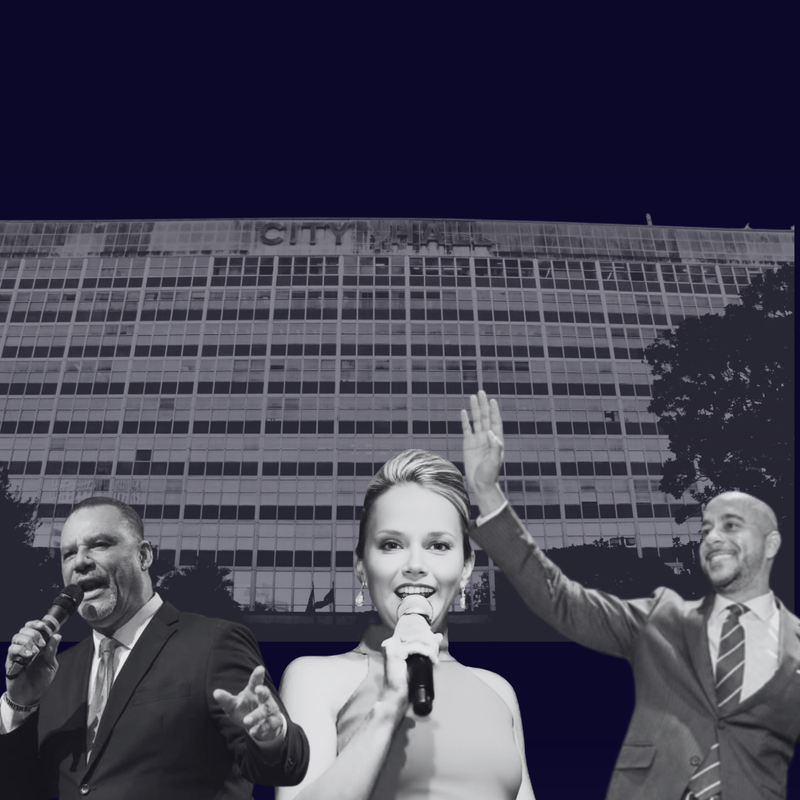
Oliver Thomas and Royce Duplessis share the same problem: Helena Moreno.
Recent polls show Moreno holding onto a strong double-digit lead, with 47% of total voter support compared to Dupplessis's 18% and Thomas's 16%.
On top of this, there's a large cash disparity. At the end of July, Moreno had a war chest of $1.7 million. Thomas held the second-largest campaign account, right under $500k.
Political analyst Ron Faucheux joined WWL to break down where he thinks the race is headed now that we’ve crossed the Labor Day threshold.
Faucheux's inclination: Things must heat up if we're to see any significant changes.
“Neither Oliver Thomas nor Royce Duplessis has fully defined themselves in ways that would be most helpful to their candidacies. They still have to do that while, at the same time, have to bring down Moreno,” Faucheux explains.
The need to chip away at Moreno's lead means voters should expect more attack ads in coming weeks. Faucheux also explains that if they plan to attack, they'd best start early.
“One of the problems the candidates in the last gubernatorial election had was that they were afraid that if they attacked Jeff Landry and pulled votes off them, they wouldn't go to them, but their opponent.” Faucheux states.
Could Moreno benefit from debate dodging?
In the past few high-profile Louisiana elections, frontrunners have skirted by without the need to attend many debates. With plenty of debates and forums lined up, some question whether Moreno would be better off stepping out of the spotlight to avoid direct, publicized attacks.
“There is a difference in the campaign,” Faucheux weighs in. “In the governor's campaign, Landry had a situation where he didn't want to participate in debates, largely because most of the people running against him were republicans."
“I have no idea what Moreno’s strategy is,” Faucheux continues. “But she (Moreno) feels like, as a candidate, she can go toe to toe with other candidates. She has a lot of knowledge of city government; she’s been on the city council… I think Moreno wants to show the toughness and strength and knowledge that people will want in a mayor—and that she can do it in a debate. So she's willing to take that chance. I don't know if that’s their strategy…it may be something as simple as that polling has always shown that voters want and expect candidates to debate. And when a candidate doesn't debate, it makes them look weak.”
When comparing the New Orleans Mayoral Election to Louisiana gubernatorial and Senate elections, Faucheux says there are big differences that will likely keep Moreno front and center at debates.
“Those elections were part of a national Trump/Anti-Trump-Republican/Democrat-Left/Right election patterns. The local election is more of a personality contest than it is ideological or partisan, because they’re all Democrats,” says Faucheux.
How is race factoring into the New Orleans mayoral election?
“What’s interesting is that she (Moreno) has the strongest multi-racial coalition in support of her,” says Faucheux.
According to a poll commissioned by WWL TV by Faucheux Strategies, Moreno holds a small lead among black voters and a commanding lead with white voters.
“She was polling 70 percent among white voters, and 30 percent among lack voters. On the other hand, Oliver Thomas had almost no white votes (3%) and was receiving almost 24% of the black votes. Royce Duplessis was the same: 24% of the black vote, but he did show some white votes at about 10%,” says Faucheux.
As election day nears, is there a likelihood that voters could see Moreno's lead begin to falter?
“There are two questions that have yet to be answered,” states Faucheux. “One, will there be attacks? And if there are, how effective will they be? (And two) What will voter turnout look like?
Faucheux says that if Thomas and Duplessis want to put their best foot forward, they had better begin launching offensives soon.
“I go back to the last governor's election because you had one candidate who was way ahead, and then other candidates trying to create a runoff, but they never got a runoff. A lot of candidates in the governor's race were holding their fire until the end—a lot of it had to do with money. A lot of analysts thought people waited too long to go after Landry,” Fauchauex recalls.
"People are asking the same about the mayor's race," Faucheux concludes. "Are the candidates opposing her waiting too long to go after her? Will she be able to solidify her support base? Even if they do end up going after her in the end, it may not be effective.”

